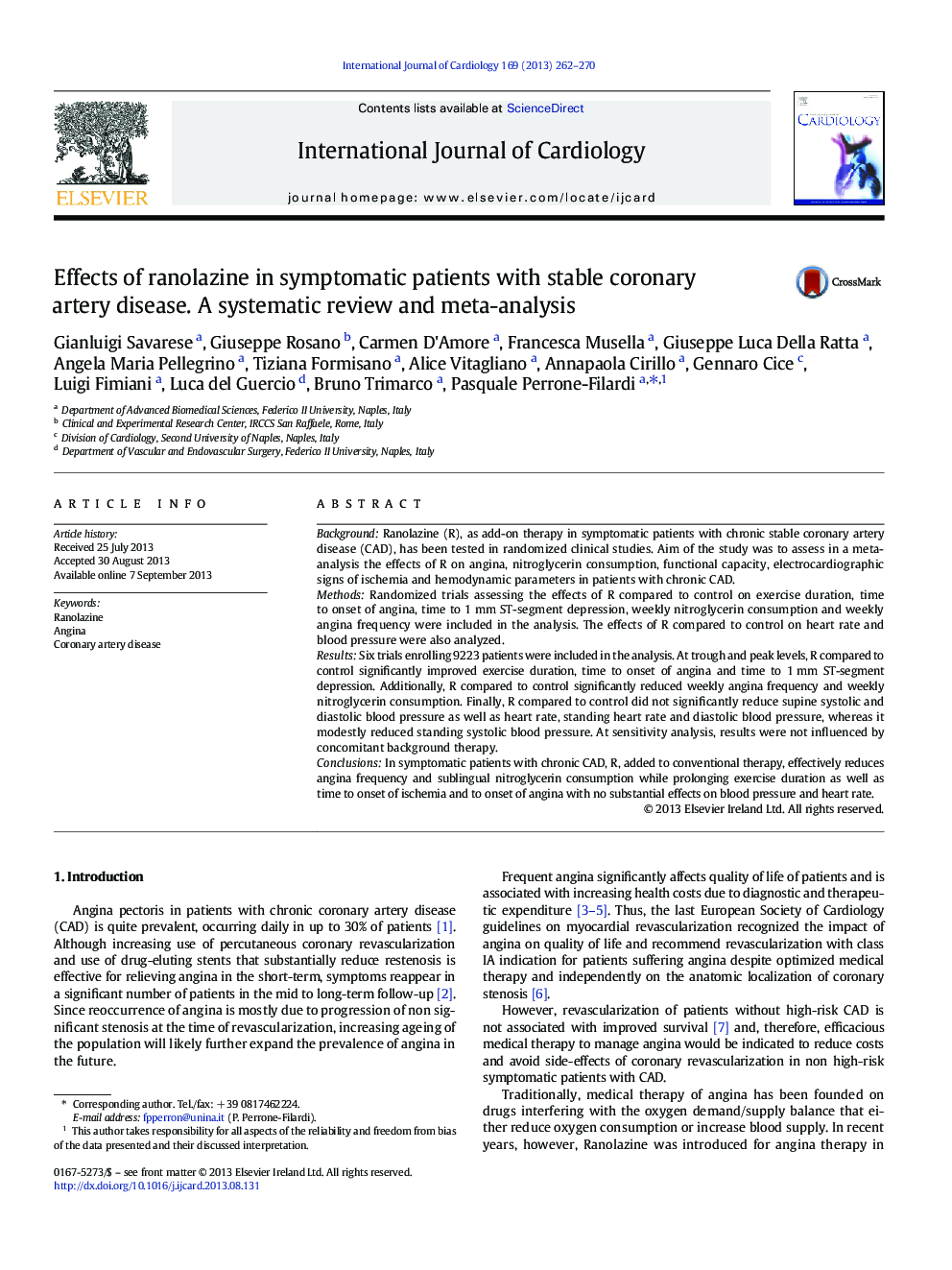| Article ID | Journal | Published Year | Pages | File Type |
|---|---|---|---|---|
| 5973987 | International Journal of Cardiology | 2013 | 9 Pages |
BackgroundRanolazine (R), as add-on therapy in symptomatic patients with chronic stable coronary artery disease (CAD), has been tested in randomized clinical studies. Aim of the study was to assess in a meta-analysis the effects of R on angina, nitroglycerin consumption, functional capacity, electrocardiographic signs of ischemia and hemodynamic parameters in patients with chronic CAD.MethodsRandomized trials assessing the effects of R compared to control on exercise duration, time to onset of angina, time to 1 mm ST-segment depression, weekly nitroglycerin consumption and weekly angina frequency were included in the analysis. The effects of R compared to control on heart rate and blood pressure were also analyzed.ResultsSix trials enrolling 9223 patients were included in the analysis. At trough and peak levels, R compared to control significantly improved exercise duration, time to onset of angina and time to 1 mm ST-segment depression. Additionally, R compared to control significantly reduced weekly angina frequency and weekly nitroglycerin consumption. Finally, R compared to control did not significantly reduce supine systolic and diastolic blood pressure as well as heart rate, standing heart rate and diastolic blood pressure, whereas it modestly reduced standing systolic blood pressure. At sensitivity analysis, results were not influenced by concomitant background therapy.ConclusionsIn symptomatic patients with chronic CAD, R, added to conventional therapy, effectively reduces angina frequency and sublingual nitroglycerin consumption while prolonging exercise duration as well as time to onset of ischemia and to onset of angina with no substantial effects on blood pressure and heart rate.
